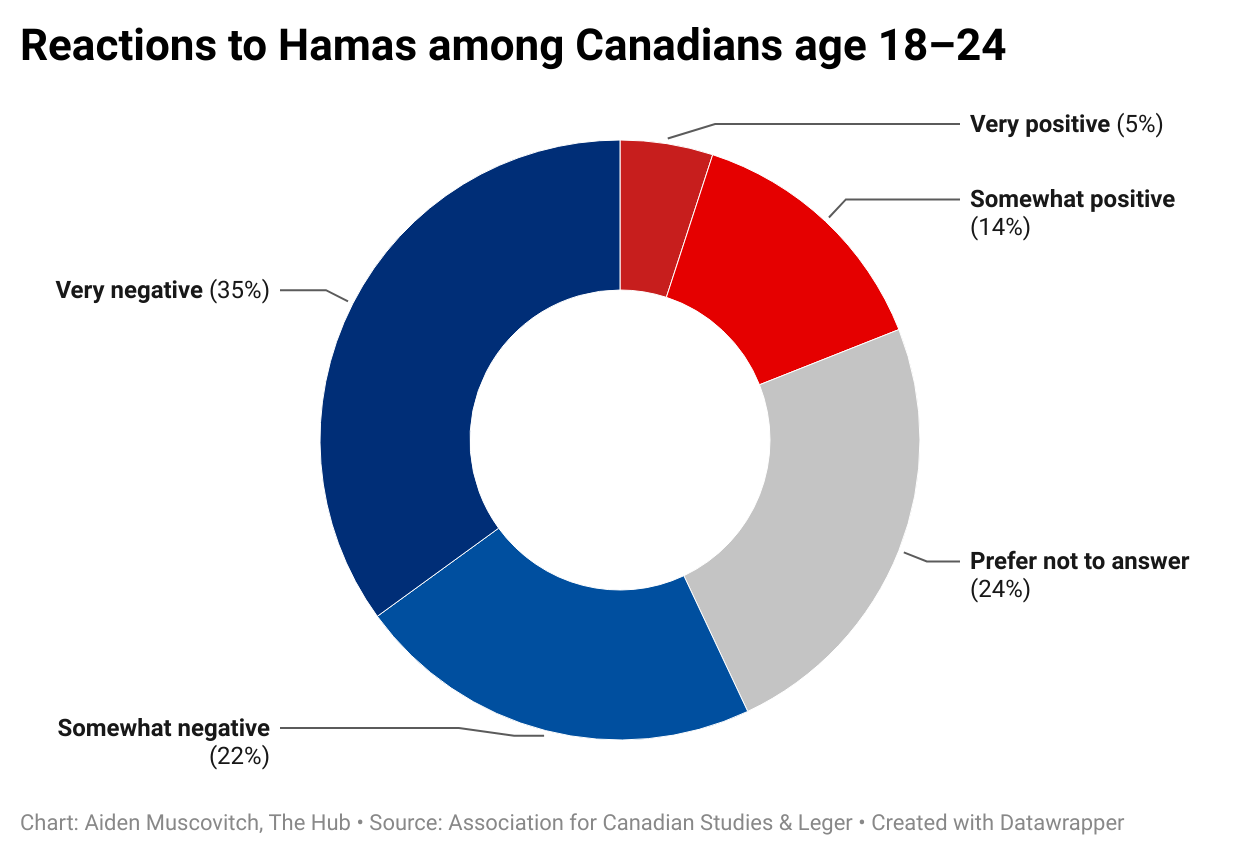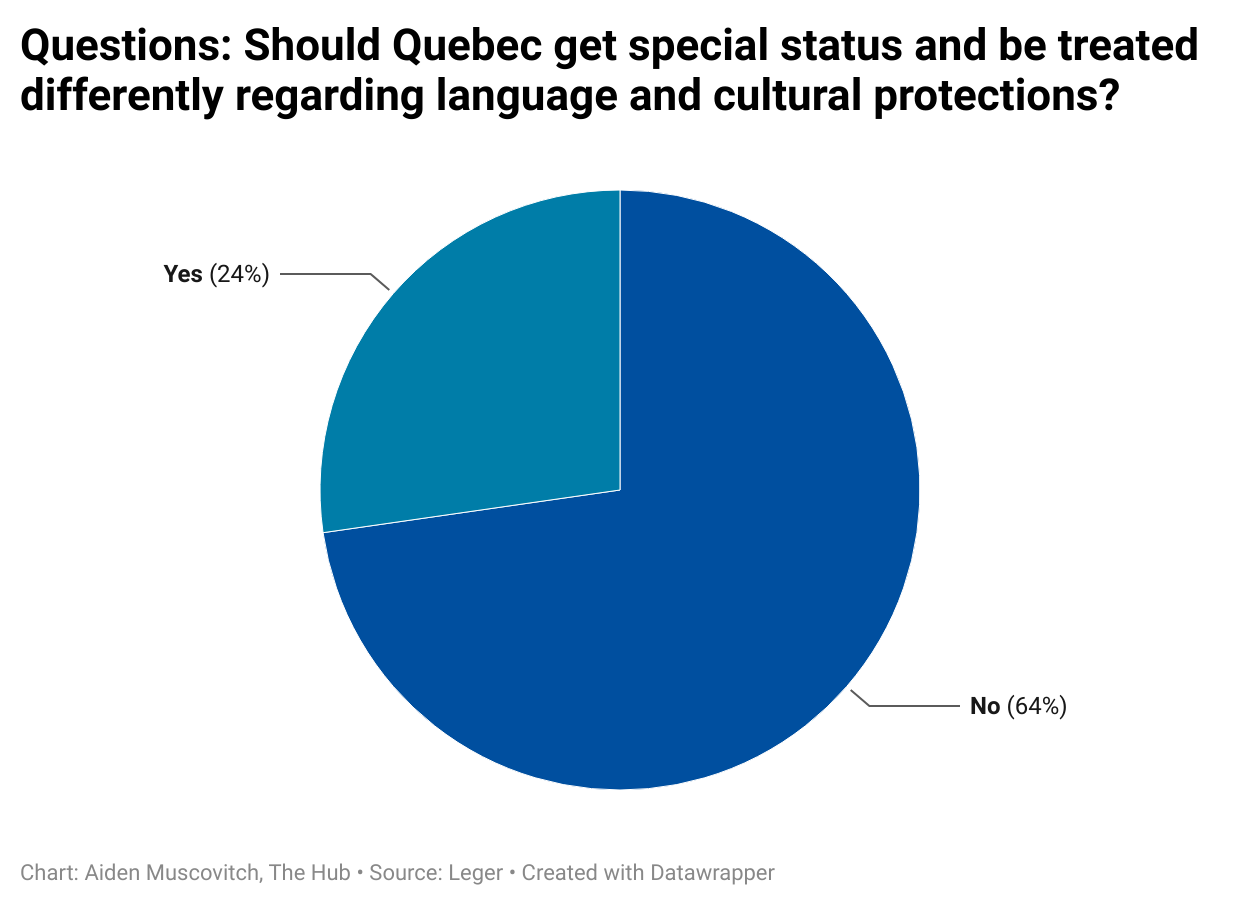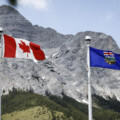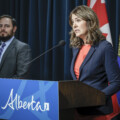This is The Week in Polling, your Saturday dose of interesting numbers from top pollsters in Canada and around the world, curated by The Hub. Here’s what we’re looking at this week.
One in five Canadians between the ages of 18 and 24 view terrorist group Hamas positively
Just under one in five Canadians between the ages of 18 and 24 view Hamas positively. Almost exactly a year after Hamas members, recognized as terrorists by the Canadian government, killed over 1,200 Israelis and kidnapped 251 (many of which are still being held hostage) about 20 percent of Canada’s young people do not see them in a negative light.
At least seven Canadians were killed by Hamas during their attack on October 7th. Some of these Canadians fall into the age demographic mentioned above. Ben Mizrachi, a 22-year-old Vancouverite who served in the Israeli Defence Forces as a medic; Netta Epstein, a 21-year-old Israeli Canadian who heroically jumped on a Hamas grenade to save his fiancée; Shir Georgy, a 22-year-old Supernova music festival attendee, and Tiferet Lapidot, a 23-year-old who attended the same music festival.
Since October 7th, Canadian streets have regularly been filled with pro-Palestinian supporters protesting Israel’s military response to the massacre, while also targeting Canadian Jewish community centres and businesses. This week, a group of protestors in Vancouver burned a Canadian flag, while wearing green headbands reminiscent of the ones Hamas militants wear.
More than half of Canadians who want kids have waited longer than they’d like, primarily due to the cost
Canada may be approaching a birth rate crisis as the country’s fertility rate hit its lowest point in recorded history, for the second year in a row in 2023.
More than 50 percent of Canadians want children, but have had to wait longer than they would have liked, largely due to uncertainty surrounding their finances and the job market (41 percent), the cost of childcare (33 percent), and the housing affordability crisis (31 percent).
Out of all generations, Canadian millennials are the least concerned about climate change
Overall, 62 percent of Canadians are concerned about climate change, representing a decrease of 14 percent from an identical Abacus Data poll conducted last year.
When broken down by age, millennials are the least worried about climate change, with only 31 percent of Canadians between the ages of 30 and 44 feeling concerned.
The age group most worried about climate change is baby boomers, with 50 percent of Canadians over 60 concerned about the long-term shifts in temperatures and weather patterns.
Nearly two-thirds of Canadians think Quebec should not get special treatment or cultural protections
Canada is a multilingual country with two official languages nationally: English and French. Quebec, however, maintains only the latter as its sole official language. It has been Quebec’s only official language since 1974.
About 22 percent of Canadians have French as their mother tongue, compared to 76 percent who first spoke English. The majority of Canadian Francophones, 84 percent, live in Quebec. The Government of Quebec’s website cites the French language as “the common language of the Québec nation.”
Yet, the preservation of the French language and culture is a contentious issue in Canada, as 64 percent of Canadians report believing that Quebec should not be afforded special treatment or protections regarding its French language and culture. Some of these special treatments may include how Quebec sets its own immigration standards, which bolstered French language requirements for immigrants.













